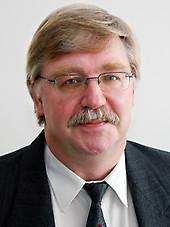The initial situation
On 25 June, almost 9.4 million registered voters will decide who will steer the country's fortunes at national and municipal level for the next four years starting in January 2024. Elections will be held for the president and vice-president, 160 congressmen, 340 mayors and 20 deputies for the Central American Parliament.
There is a complex context of problems in Guatemala:
High and extreme poverty, malnutrition,High and extreme poverty, malnutrition, low education levels, a deficient and partly non-existent health system, a high proportion of informal employment, inadequate (transport) infrastructure, a precarious security situation, the influence of organised crime on politics and society, almost limitless corruption, high migration pressure with all the accompanying social problems. Added to this is the dependence of the state budget and many families on the so-called "remittances", i.e. remittances from migrants abroad, which are estimated at about 20% of the GDP.
Above all, however, many national and international observers are democratic institutions, even to the point of accusing the government of "bringing the various organs of the state into line". There is a high level of dissatisfaction with the government, which is rated as the worst of the past four governments (75% describe it as "bad"). In other Latin American countries, especially those with a large indigenous population, much more isolated problems lead to dramatic political convulsions and changes at regular intervals. Not so in Guatemala, for very different but interrelated reasons. In particular, the 24 Mayan peoples, the majority population in Guatemala, are too diverse and far from forming a unified political sounding board or even constituting a political actor. The indigenous MPL (Movimiento para la Liberación de los Pueblos) came 4th in the 2019 elections by a narrow margin, but is generally considered too anti-systemic and fundamentalist to succeed in bundling a constructive protest potential fed by all population groups. There are no institutionalised channels capable of aggregating and articulating this discontent and translating it into viable alternative policy proposals. The least capable of doing this is the fragmented, highly volatile and strongly nepotistic and clientelistic party system. Parties and their foundation are seen more as a short-term business model than as a long-term, programmatically and ideologically consolidated political project. To illustrate: of the 160 MPs, 126 are running again, and of these, 78 MPs are running again for 28 different parties for which they had not yet run in 2019. The result is what is known in Guatemala as the "pact of the corrupt", i.e. all those in parliament who support the current government. On the other hand, no change elites willing to take action are discernible in the core; rather, the persistence elites dominate, who do not face any problematic pressure to change. A traditionally pronounced distance from politics, even a fear of positioning oneself too strongly politically, virtually no hope of change through the upcoming elections, but at the same time manifold criticism and dissatisfaction with the situation of the country - this ambivalent formula probably describes the current mood most vividly.
The full-length publication is only available in German.



